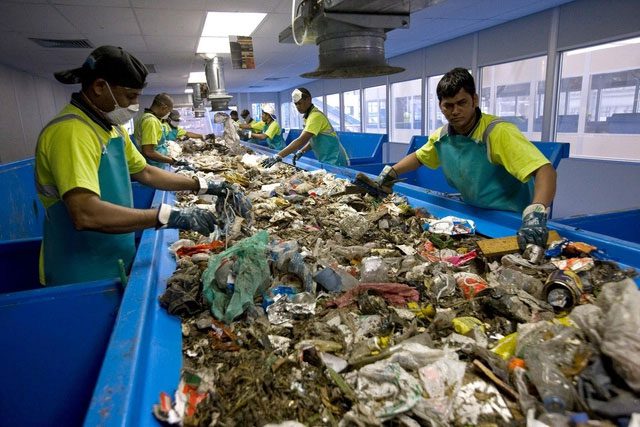Viewing waste as a resource is a growing trend in many countries around the world. As such, waste can completely transform into a valuable resource for life.
Waste is no longer a burden or a source of frustration; it can entirely become a resource that serves our lives. The emphasis on waste sorting, along with enhanced waste recycling processes, is bringing new awareness to waste management.
During a routine inspection of the wastewater treatment system in Al Nahda Park (Dubai, United Arab Emirates), what was pulled up was a clear, odorless source of water, akin to any potable water source. However, this was wastewater sourced from a nearby restroom. After treatment, the restroom wastewater is now given a new lease on life.
Ms. Meriem Bestani, Director of AquaBioStep Recycling Company in Dubai, stated: “What we do is bury a filtration system like this underground. With a special design, these filters can create a habitat for beneficial bacteria that can eliminate toxins. After recycling, the wastewater is filtered to 96%, achieving very high quality.”
“One person’s waste is another person’s treasure.” This philosophy is being pursued by companies like Dgrade. Discarded plastic bottles are collected, cleaned, and chopped into fibers. From this, over 200 different types of fabrics have been created, opening up a fashion industry from plastic waste.

“One person’s waste is another person’s treasure.” (Photo: The National)
Ms. Emma Barber from Dgrade, a plastic waste fashion company in Dubai, shared: “Approximately 4 billion plastic bottles are discarded each year in this region. We estimate that we can recycle up to 1 billion bottles annually. More and more businesses are coming to us, ordering everything from chef uniforms to clothing for Formula 1 racing athletes.”
Population growth has made waste, especially non-biodegradable waste, a burden for most societies. Transforming waste into resources not only opens up a promising pathway but also becomes an unavoidable direction for the development of societies in the future.
Over the past decade, the amount of waste and other refuse in Dubai has increased tenfold, but at the same time, a circular economy is being promoted. Even used cooking oil can now be processed to become fuel for engines.
Mr. Karl W. Feilder from Neutral Fields in Dubai reported: “Engines running on recycled cooking oil produce emissions that are only half of those from conventional fuels. Given the current fuel prices, our recycled oil is even more competitive. We currently sell every drop of oil we produce.”
Dubai aims to become a zero-waste city by 2030, meaning all types of waste—from household to industrial, solid to liquid—will be recycled and processed, thus giving waste a second, and even third and fourth, life.


















































